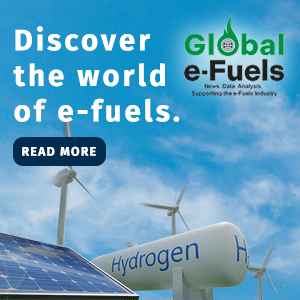A new decade for chemical logistics
After welcoming remarks from ECTA president Andreas Zink, who highlighted sustainability, digitalisation and improving customer experience as the talking points for the day, Veroo’s managing director, Vincent Beaufils, kicked off discussions with an overview of the company’s digital efforts.
Veroo, a spin-off from European transport giant LKW Walter, describes itself as a ‘data driven performance enabler’.
The company uses an algorithm based on extensive industry experience, know-how and real-time data, to accurately predict estimated time of arrival (ETA) for logistics companies. The end result, Beaufils explained, is a summary of 50 key factors, including real-time traffic, weather,congestion, loading and unloading times.
With data collection at the core of this process, operators may have to learn to share this data through collaboration and openness, Beaufils stressed, to ensure it is put to best use for the industry as a whole.
Moving the focus from digitalisation to the customer experience, Jesper Bennike,executive vice-president of business development at project44, explained how end-to-end freight visibility can be achieved through an Amazon-style experience in a non-consumer industry.
With Amazon deliveries set to arrive at a pre-determined time, why shouldn’t freight carriers benefit from the same experience? The challenges here are twofold, Bennike explained: firstly, data must be shared between supply chain
players; however, the fragmented nature of the European haulage market presents an immediate obstacle to this data sharing. To build a system that would work, Bennike noted, project44 had to define a common data sharing standard that could be trusted by all freight carriers. The result is a solution that enables the sharing of information quickly and securely, which enhances supply chain visibility and improves customer experience.
The afternoon’s sessions changed track to consider rail transport, with Geert Pauwels, CEO of Lineas, making the case for the rail industry. Shippers across Europe are currently facing challenges when trying to move freight off the roads and onto rails, a problem that is compounded by the lack of interoperability and the relatively high cost of using the railways.
Companies are failing to make use of the available rail capacity, Pauwels lamented, with around 75% of European freight still moved by road – an unsustainable volume. In an attempt to encourage the increased use of rail for freight transport, a European initiative has been launched: Rail Freight Forward. The enterprise, which currently comprises 18 members, has set an ambitious aim to increase the modal share of rail freight in Europe from the current 18% to 30% by 2030 as the “macro-economic better solution for European growth”. This higher share of rail freight is expected to lead to a €100 billion economic gain, save 290 million tons of carbon dioxide emissions, and drastically reduce the number of fatalities from truck accidents. A winning solution by all accounts.
After Pauwels’ presentation of an alternative mode of transport, the discussion then turned to an alternative fuel for transport. Paolo Indiano, senior sourcing manager at Evonik Industries, and Volker Wehber, managing director of SEPURAN Green at Evonik Resource Efficiency, turned attendees’ attentions
towards the use of bio-CNG and bio-LNG as sustainable alternative fuels. Compressed natural gas (CNG) and liquefied natural gas (LNG) have both long been touted as more sustainable alternatives to fossil-based fuels; however, here the bar was raised, with Indiano and Wehber making the case for CNG and LNG from biological sources.
Evonik has been developing a process using anaerobic digestion to convert organic waste into methane, which can be used in power generation and as a transport fuel. These alternative biofuels are already available to supply chain operators, and will likely see an increased uptake in the years to come.
During the annual meeting, ECTA’s responsible care director Evert de Jong took the opportunity to present the association’s upgraded Responsible Care programme, under the new title ECTA RC 2025. The programme is built on the unchanged basis of international responsible care principles; however, it now includes more specific key areas that are in line with current challenges
facing the chemical transport and logistics industry. An ECTA RC 2025 Charter Document was published in November 2019, with LKW Walter director Bernhard Haidacher officially signing the first new certificate on behalf of his company.
The next ECTA Responsible Care Workshop will take place in Brussels on 15 October 2020, while the 2020 annual meeting will be held, once again, in Düsseldorf’s Hyatt Regency on 19 November 2020.








